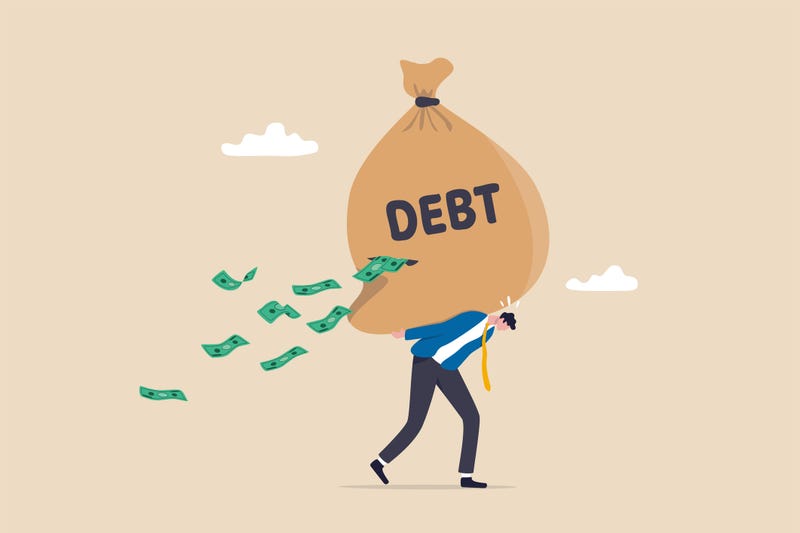
With the U.S. Treasury Department giving Congress until June 1 to raise the federal debt limit, many Americans have found themselves worried about what a possible default could mean in their everyday lives.
If default does happen, the implications could be major for Americans.
“Everyone in America would feel the effects of a default. If the United States were to default, tens of millions—including families with children, retirees, and veterans—would quickly, even overnight in some cases, face the prospect of losing the regular Federal payments that help them to make ends meet,” the White House warned in October 2021 when the government last faced default.
This means Social Security payments may stop being delivered to retirees on time, federal employees and contractors would see payment delays, and the cost to borrow money would balloon, stopping people from buying homes, cars, or paying off credit card debts.
But, if time runs out on the doomsday clock and the country does default, there are some things Americans could do to be better prepared for a worst-case scenario.
Budget, save, and be frugal
Anna Helhoski, a senior writer with NerdWallet, shared with NPR that sticking to good habits is the way to go, meaning no excess spending, sticking to a budget, and putting enough away in savings to have at least three months of living expenses in case of an emergency.
In other words, Helhoski says that Americans should prepare for default as if they “would for an impending recession.”
Interest rates are expected to skyrocket if the country defaults, meaning any credit card debt Americans have may soon cost them more than expected.
This comes as Americans have racked up nearly $1 trillion in credit card debt, a 17% jump from a year ago, with inflation taking its toll on many, the Federal Reserve Bank of New York reports.
To best be prepared, financial experts say to pay off debts with the highest interest rates as quickly as possible.
For anyone worried about making payments, Helhoski says getting in contact with lenders early is the best way to see if you can lower your payments.
One resource available is the U.S. Department of Housing and Urban Development, which has “housing counselors who can also help homeowners explore any alternatives to delinquency and anything that would have long-lasting impacts on their credit,” Helhoski said.
Make smart investments
If you plan on making any investments, experts are warning to do so with caution, sticking with only those considered high-quality, as CNN reports that the U.S. defaulting could put high-risk debt instruments under the most pressure.
Vanguard spokesperson Jessica Schifalacqua shared with the media outlet that discipline is key when it comes to tumultuous times.
“Our general guidance is for investors to maintain a balanced portfolio in keeping with their goals and to remain disciplined. A long-term view is especially important during periods of uncertainty,” Schifalacqua told CNN.
But, even if the stock market does take a hit, experts say not to worry. Instead, they say to stay the course.
“Fight your worst instinct to act on the news,” Teresa Ghilarducci, a labor economist and retirement security expert at The New School, shared with NPR. “All the academic research shows that if you buy and hold, you will do so much better than if you try to follow market trends, whether that be responding to an economic crisis or a recession.”
When to make the big purchase?
Anyone planning on buying a new car or home may want to hold off for now or make the purchase as soon as possible — being that your interest rates are locked in.
In the event of a default, mortgage rates — which have already been near record highs since last November — could top out around 8.4%, sending a ripple effect through the housing market, Zillow estimates.
In this case, anyone buying a home could get locked into paying more than they can afford if their rates are set.
“You’ll see a dramatic drop in buyers, and when that happens, then you’re going to see property prices fall, a halt on different construction and home improvement projects,” Artin Babayan, a home loan officer based in Los Angeles, shared with NPR.
But even worse, a crash in the housing market, which accounts for nearly a fifth of the country’s economy, could cause more damage elsewhere.
“I think it’ll really screw up the economy,” he said.


